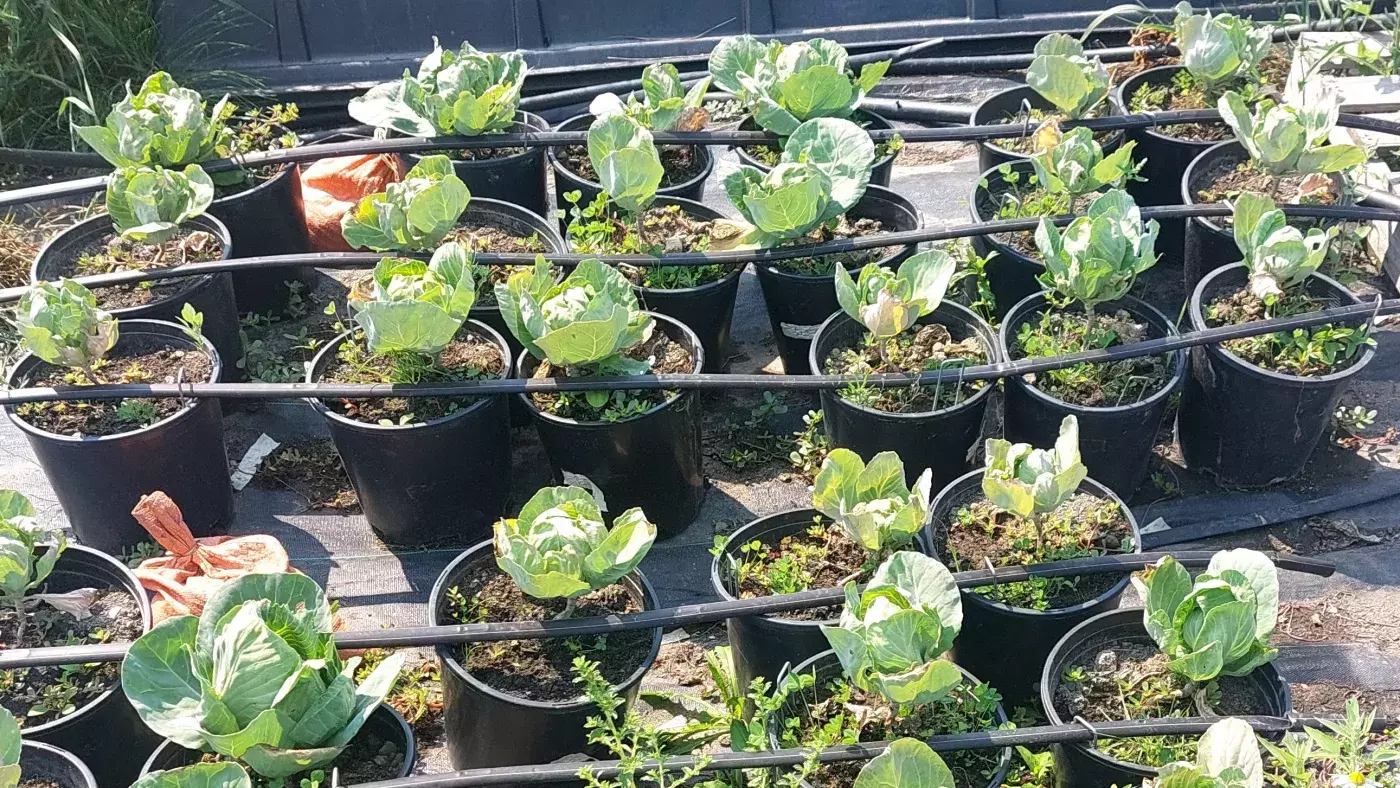

Biochar amendment did not increase cabbage growth or chlorophyll content.
Sustainable Agriculture Student Research Project
Interaction between biochar amendment rate and feather meal fertilizer application on cabbage growthTobias Carl, Department of Sustainable Agriculture, 2024 |
Introduction
- Organic vegetable production must follow certain standards and regulations in terms of amendments which rules out many products that are used in conventional agriculture production.
- Soil amendments, like compost, are costly and often result in excess phosphorus in the soil.
- Biochar is carbon-rich charcoal derived from incomplete combustion in an oxygen-limited environment (pyrolysis) which has been used as a soil amendment to improve nutrient and water holding capacity and sequester carbon.
- Biochar may enhance low-input vegetable production in nutrient-limited environments, which are common on organic farms.Several studies showed positive effects on plant growth when integrating biochar into soils.
- This study used biochar and feather meal to discover the effects of these amendments in an organic farming context on the KPU farm.
Objectives
- Determine if biochar improves cabbage growth.
- Test for any interaction between biochar application rate and soil fertility.
- Determine if biochar, with or without feather meal fertilizer, influences cabbage leaf chlorophyll content.
Materials & Methods
- Randomized complete block factorial design with 5 replicates and 6 treatments.
- 3 levels of biochar (0, 5, 10%)
- 2 levels of fertility (+/- feather meal).
- Growing medium: Soil from the KPU Farm; Grown in pots (volume: 8 liters).
- Single 2-week-old cabbage seedlings transplanted into each pot and harvested after 13 weeks.
- Data collected: Weight & chlorophyll content in leaves.
- Irrigation was done with drip lines.
- Analyzed by linear regression.
Experimental Design
Image
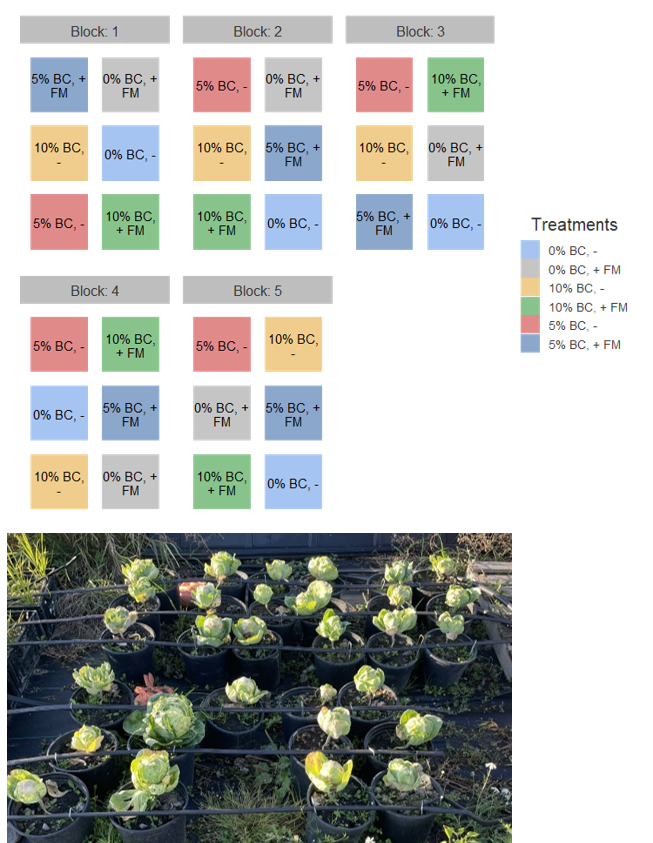
Results
Weight
- Significant difference between applications using feather meal and applications without feather meal.
- Biochar did not influence growth of cabbage plants (Figure 2).
Image
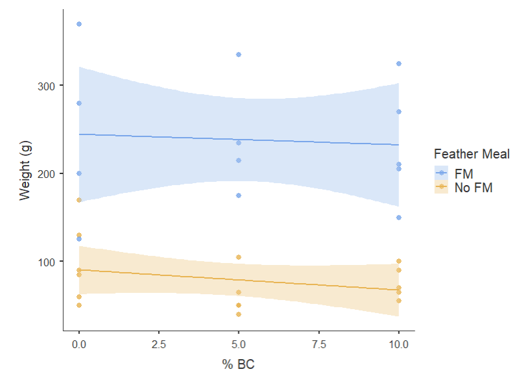
SPAD readings
- No significant differences found in SPAD readings between plants when using feather meal or no feather meal. Slightly higher readings in plants which were treated with feather meal.
- Biochar content did not significantly influence SPAD readings in cabbage plants.
Image
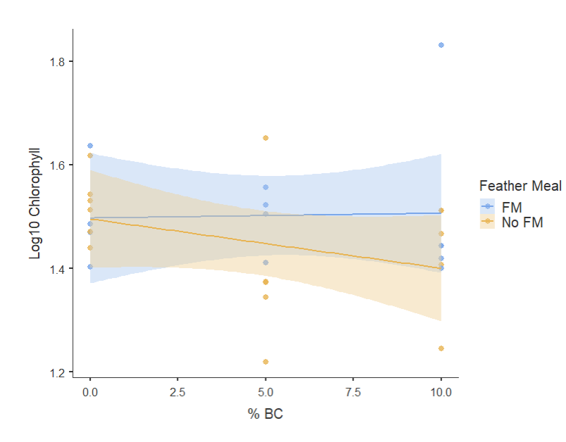
Discussion
- Feather meal improved cabbage growth but there was no interaction between feather meal and biochar.
- Biochar did not influence cabbage growth or SPAD readings.
- The cabbage plants had an overall poor performance during the growing period. This could have several reasons like high pest pressure throughout the season and the limited growing area in the pots.
Image
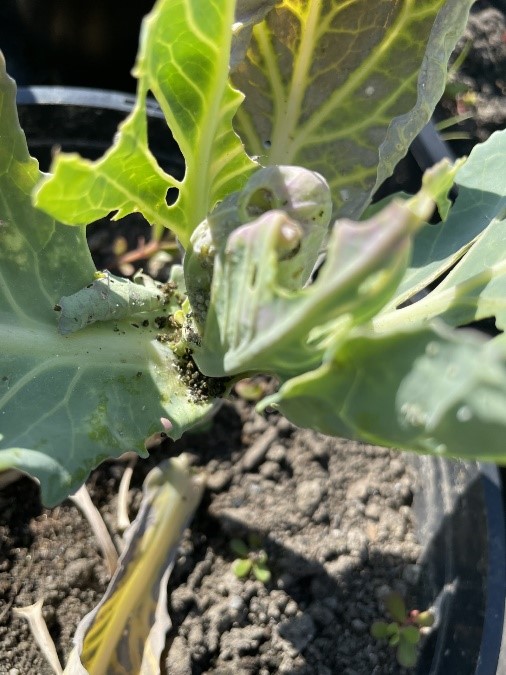
Conclusion
- The application of feather meal as fertilizer is recommended for growing crops in an organic farming context.
- The application of biochar did not negatively affect growth or SPAD readings, however, it did not show improvement of these factors.
- Future studies could include different application rates of biochar or could be made in different growing media to see whether this has a positive effect or not.
Acknowledgements
Thanks to Dr. Mike Bomford, Ben Alles, Sahar Zandieh, and Georg Janssen (Preterra Biocarbon Solutions Ltd.) for providing support and guidance throughout this experiment.
Image
